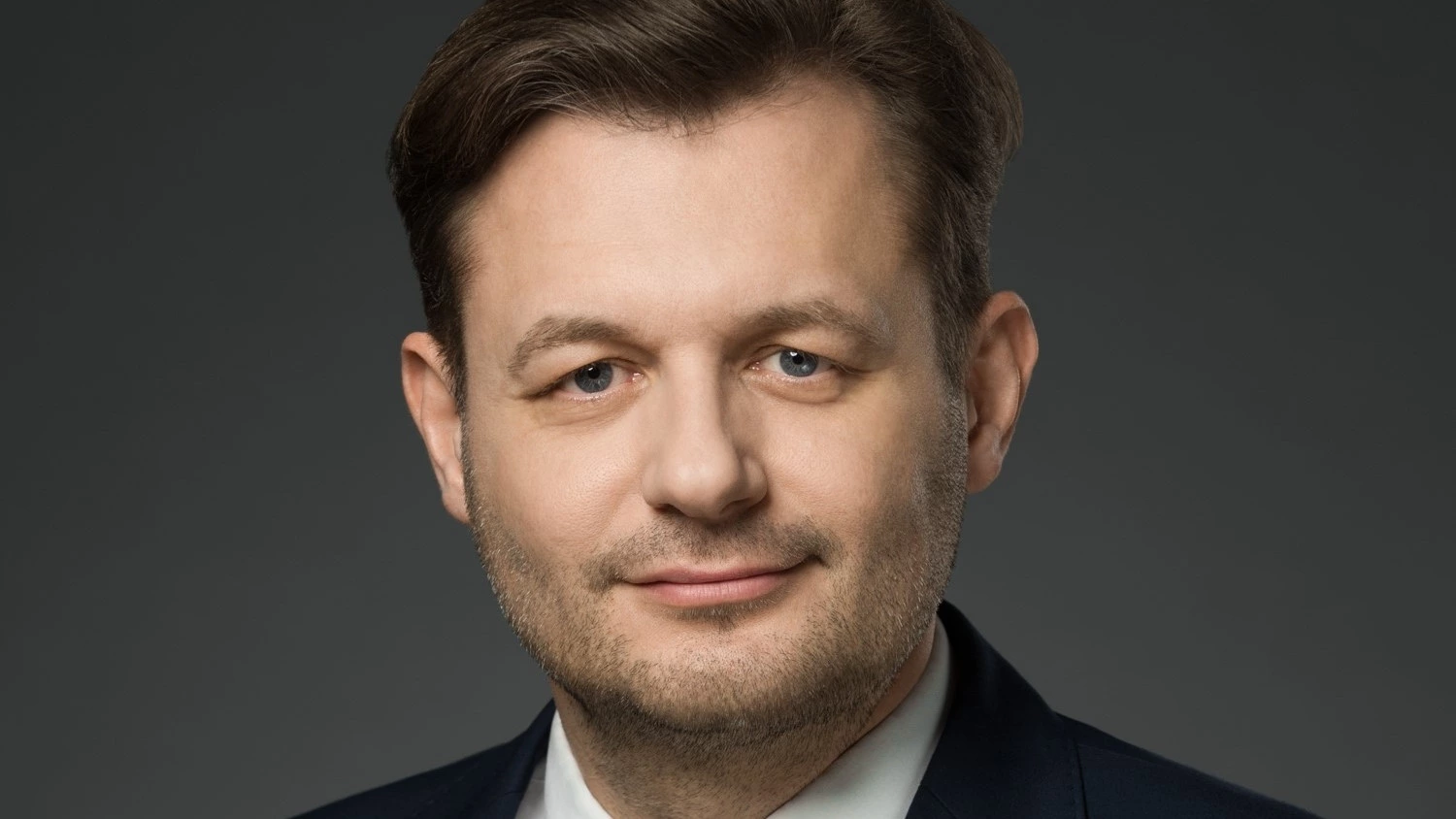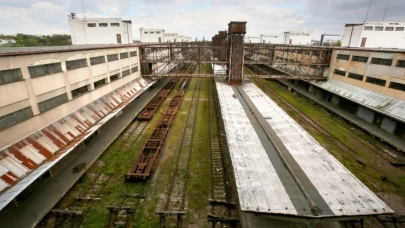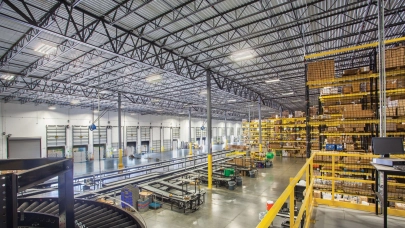
Michał Okoń, Managing Director of Zeitgeist Asset Management in Poland talked to Property Forum about the forecasts for the PRS market in Poland, subscription services and the impact of the pandemic on the rented apartment segment.
The private rental sector in Poland is at a very early stage of development, but many analysts and investors already consider Polish apartments for rent promising investment products. Why is that?
From a purely economic point of view, it cannot be otherwise. We have a gigantic supply gap and rates of return at the highest level in Europe, reaching 5-6%. In Poland, a very small percentage of flats is currently rented, while in Germany or France almost a half. In addition, there is a social factor, which is the change of the mentality of the young generation, but also the search for convenient alternatives by people in the autumn of life.
You can, of course, consider alternative possibilities, such as the countries of Western Europe, but there you have to push yourself among many players, starting from the level of a small pawn yourself. However, in Poland, there is no such competition. There is a lot to do, but also a lot to take. In other words, the institutional lease is a secure investment with little risk in the long term, and the rate of return is relatively high and certainly greater than in other countries.

Michał Okoń
Managing Director
Zeitgeist Asset Management in Poland
Inhabitants of Central and Eastern Europe are very attached to the ownership of the apartments in which they live. Do you think that they will change this attitude and decide to rent?
Generational change is of the greatest importance. Young people - and these most often use leases - want to get to know the world, are flexible, are not afraid of changes and do not want to become permanently attached to one place. They prefer to invest in knowledge and development, rather than having long-term loans, especially during a pandemic, when fewer and fewer people are sure of their income. In addition, we are generally observing a change in lifestyle, because also the elderly, 50 or 60+, are looking for a comfortable and modern apartment, often offering maintenance services. My view is that we like to come to the ready, especially in such a changing reality. When you rent an apartment from a professional entity, you can simply use it and relax, forgetting about a whole lot of administrative problems.
The reality around us has made us accustomed to the fact that we have a lot of things for a subscription - a telephone, access to TV, cars, and now also apartments. Remember that living in an institutional rental is just a form of subscription. In this way, we pay for the use of things along with additional services. So we buy a specific piece of an asset over time. We can call it a time-asset, i.e. the year of living in a given apartment, which is located in a given building in a given location.
It should also be remembered that not only our society has changed, but also the style of our work. We have become more mobile. We no longer work in one company for 10 or 20 years or our entire professional career. We often change the place of stay for a year, two or five years and sometimes for half a year or three months. It is obvious that if we go, for example, for an annual contract to Gdańsk, we will not buy an apartment in this city and invest in a mortgage for 30 years, but we will rent something, looking for a suitable standard. People need space for a home office and for children. This is what we offer our clients - larger flats with relatively low rent.
What exactly is the Home by Zeitgeist concept? How does it work?
Home by Zeitgeist is a completely new concept, ensuring safe rental, without commission or the involvement of third parties. All apartments, including the service, are offered directly by the owner of the building. In our Czech investments, we see that such a solution is especially attractive for corporate clients who need housing for contract workers. This is because they are provided with the service of the premises and a signed document with one partner. This translates into the security of the contract as well as the simplicity and stability of mutual relations.
We are aware that people with different wallets want to use our offer, which is why we have prepared several "service packages". As for the standard, we aim at the so-called mainstream segment. The premises have living rooms, separate bedrooms, comfortable bathrooms and are equipped with modern household appliances. We try to ensure that all of them are equipped with loggias, balconies, terraces or gardens. Tenants can also use underground car parks with places for electric cars and bicycles. So we prepare everything that the buyer currently expects. Therefore, a tenant who decides to take an institutional lease receives a finished product - the same as on the primary development market - but in the lease formula.
Home by Zeitgeist is also a unique customer experience based on the automation of many processes. Transferring the tenant's service to another level, where in addition to the delivery of the apartment itself, i.e. the time-asset, we offer additional services in the form of one integrated product.
The fact that Zeitgeist operates in the build-to-rent / forward purchase model clearly shows that the offer of Polish developers for large investors does not exist. Do you think this will change in the near future?
Fact. When Zeitgeist entered the Polish market, there were plans to buy finished properties. Due to the lack of a product on the market, we had to start creating them ourselves. However, the expansion of the lease offer based on newly constructed buildings requires a special type of agreements between funds and developers. Today, there is mutual learning and outreach on both sides, which is getting better and better because we have good arguments.
Among them, the most powerful is the financial one, namely the lack of the need for the developer to take out a loan for the investment. The contract with the investor can be established in such a way that, firstly the fund undertakes to purchase the building after the completion of construction, and secondly -t ensures early financing of the various stages of construction. As a result, the contractor only needs to maintain a small working credit. The second argument is the cost of selling the apartments. Usually, to sell 100 units, you need to reach 15,000 people. Having one partner, the developer does not have to pay for the sales office, marketing, hiring people, but also for individual adaptation of the premises for each client. In short, the developer has the investment "over the top". He builds flats and hands them over to the fund.
A good example of such cooperation is our new housing estate in Gdańsk, which is being implemented by the developer BMC - and we then buy it from them as a finished product.
The rental market has been negatively affected by COVID-19 in Poland. Students stay at their parents' homes, foreign workers and tourists are in their homelands, and young families struggle with unemployment. Aren’t you afraid that the demand for flats for rent will decrease?
I have no such concerns. I consider the disruption in demand to be temporary and it does not affect our plans. Even with the current declines, it is easily within the adopted risk scale. Student houses are a good example. The pandemic had an impact on them because we rented 99% of rooms in Czech dormitories, and now this number has dropped to 70%, which is a good result in itself. We know that the declines are mainly due to students being unable to travel from country to country. At the same time, the demand for our services in Prague is still high, we receive inquiries from other universities.
Institutional leases offer additional advantages compared to regular leases. It allows you to use real estate that you cannot afford to buy and that you would not own. Today, buying an apartment is associated with taking a loan and encumbering a mortgage for 30-40 years. It is also a matter of a complicated procedure of purchasing and obtaining financing, and in the event of problems or payment gridlocks, there are difficulties in getting rid of such property. In the case of a lease, the situation is different. If the tenant has a financial problem, changes jobs or has a lower salary during a pandemic, we can change his premises to a smaller one in the same building or move him to another facility, e.g. suburbs, where the rent is cheaper. Therefore, it is not related to the apartment in terms of capital or credit. When we look at this situation from the other side - we can see that in the case of purchasing housing for ownership, the process of changing the apartment into a smaller apartment may take a year or two, and sometimes even longer.
Zeitgeist Asset Management is already present in Warsaw, Kraków and Gdańsk. Are you planning to enter other Polish cities with your product?
We started with one project and currently, we have eight projects in three cities - in Warsaw, Gdańsk and Kraków. We are interested in development in Wrocław, Poznań, Łódź and Katowice. We are most willing to buy entire building complexes in order to co-create a new urban fabric after renovation and reconstruction. By the end of next year, we want to double our institutional rental offer in Poland - within five years we plan to have several hundred apartments in each of the seven main Polish cities. We can aim high thanks to the strong support of our institutional investors. The goal is to create a rich portfolio of premises for rent throughout Central and Eastern Europe.
As for the nearest plans, we will make 200 apartments available in Gdańsk at the end of this year. The second investment is located in the Praga district of Warsaw, at ul. Wrzesińska. The historic tenement house and the new building connected to it will be available in the first or second quarter of next year. The next project will be the complex at ul. Nowogrodzka and St. Barbara, where we will commission two smaller residential buildings. On the other hand, our flagship investment in the student housing market is "Solec 22". We plan it for 220 beds. The standard of the dormitory will be very similar to what can be seen in our student halls of residence in Prague. We hope to start construction work next month. We are already looking forward to the opening. Of course, we are constantly working on new projects that we want to appear on the market on average every quarter.



